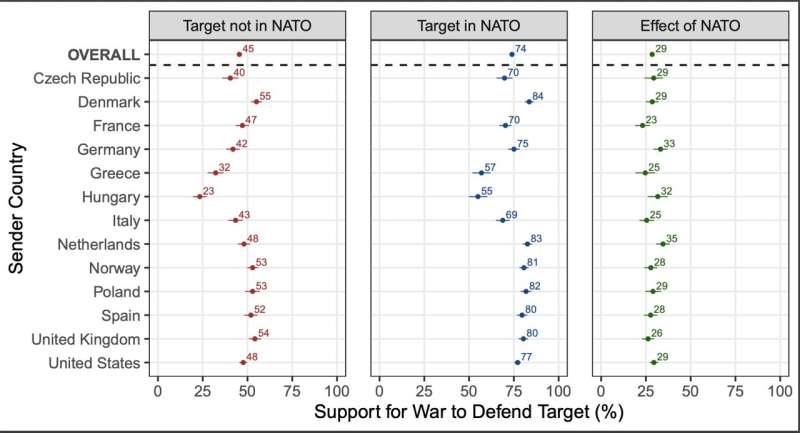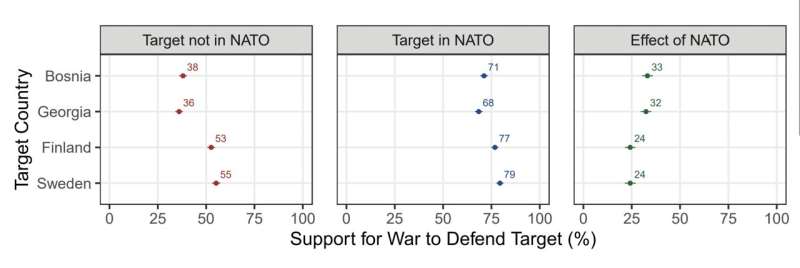This article has been reviewed according to Science X's editorial process and policies. Editors have highlighted the following attributes while ensuring the content's credibility:
fact-checked
peer-reviewed publication
proofread
Researchers explore public support for militarily defending NATO allies

Voters in North Atlantic Treaty Organization (NATO) member states are far more willing to militarily defend another country if the country joins NATO, versus if the same country does not join NATO, according to a study published in the journal PNAS Nexus.
To explore the possible consequences of expanding NATO membership, Michael Tomz and colleagues surveyed 14,000 voters in 13 NATO countries.
Each survey participant was presented with a hypothetical Russian attack on one of four possible targets: Bosnia, Finland, Georgia, or Sweden—the four countries (other than Ukraine) furthest along in their bids for NATO accession at the time of the study. Whether or not the target had joined NATO prior to the attack was randomly varied. Participants were asked if their own country should defend the target country militarily. NATO membership boosted support for military defense from an average of 45% to 74% across the four targets.
For Bosnia and Georgia, support nearly doubled between the non-member and member conditions. The benefits of joining NATO were smaller for Finland and Sweden, because most voters in NATO countries would defend Finland and Sweden even if those countries remained outside the alliance.

Finally, willingness to defend new members of NATO depended critically on whether voters perceived the alliance as valuable for their own country. Anti-NATO rhetoric could, therefore, undermine the alliance by making voters less willing to defend alliance members, whereas pro-NATO rhetoric could enhance defense and deterrence.
The results have significant implications for geopolitics and current debates about the expansion of NATO, according to the authors.
More information: Michael Tomz et al, How membership in the North Atlantic Treaty Organization transforms public support for war, PNAS Nexus (2023). DOI: 10.1093/pnasnexus/pgad206
Journal information: PNAS Nexus
Provided by PNAS Nexus




















